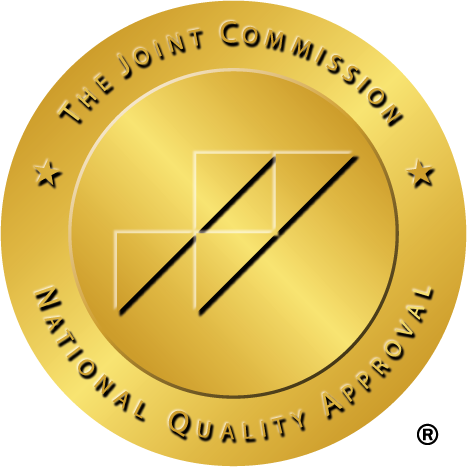KEY POINTS
- Psychiatric wards offer intensive, short-term care within a hospital setting. They provide crucial, secure treatment during severe mental health crises.
- Voluntary admission offers more freedom than involuntary treatment. Patients can leave if desired, though they must follow ward rules.
- Involuntary admission is for safety. It's used when a person is a danger to themselves or others and usually involves legal proceedings.
- Advantages of inpatient care include safety and structure: 24/7 supervision and a controlled environment aid in stabilization.
- Disadvantages include loss of independence and stigma: Limited privacy, separation from support, and potential distress are key concerns.
Psychiatric wards play an important role in mental health care. These specialized hospital units provide intensive and short-term treatment and can be lifesaving if you find yourself experiencing a severe mental illness. While media depictions often exaggerate negative aspects, many patients find psych wards to be safe, stable places where they can receive much-needed support and professional care during vulnerable times.
What Is A Psych Ward?
A psych ward is a special unit within a hospital that is dedicated to acute mental health care.[1] It’s a secure environment designed for intensive treatment of acute mental health crises. Once admitted to a psych ward, you’ll receive 24/7 care from a team of mental health professionals, including psychiatrists, nurses, therapists, and more.
A stay at a psych ward is usually brief and lasts anywhere from a few days to a few weeks. The primary goal during a stay is to stabilize your condition and address any immediate mental health concerns. To regain your stability, you’ll participate in structured daily activities, behavioral health therapy sessions, and medication management.
In contrast, a psychiatric hospital is a standalone facility focused on mental health treatment.[2] Unlike a psych ward, a psychiatric facility offers you a broader range of specialized services and usually accommodates longer stays. Depending on your needs, you might stay for weeks or even months. You’ll have access to a wider variety of therapeutic programs and activities, and the facility itself is likely to have more spacious grounds designed specifically for mental health recovery.
Voluntary Care
When you choose to be voluntarily admitted to a psych ward, you’re making a personal decision to seek help. You recognize that you need intensive mental health support and agree to be admitted to the psych ward of your own free will. Put another way, you’re not being forced or legally compelled to enter treatment.[3]
As a voluntary patient, you have more rights and freedoms compared to those admitted involuntarily. You typically have the right to leave the facility if you choose to do so, although there may be a short waiting period or a discussion with your treatment team before discharge is approved.
Realize that even as a voluntary patient, you’re still required to follow the psych ward’s rules and protocols. Your status can potentially change to involuntary if your condition changes or you’re deemed a danger to yourself or others.
Involuntary Care
Involuntary admission to a psych ward may occur if one is deemed a danger to oneself, family members, or others due to a mental health issue. It may also be appropriate if you’re unable to care for your own basic needs.[4] In this scenario, you’re admitted to a psych ward without your consent. Typically, this happens via legal proceedings.
The process usually begins with an evaluation by a mental health professional. If they determine you meet the criteria for involuntary admission, you may be held for further assessment.[5] This hold can be extended if it’s decided that it’s necessary for your safety or treatment.
Personal rights are more restricted if you’ve been admitted involuntarily. You won’t have the freedom to leave the ward at will, and your treatment plan may be implemented without your agreement. You do, however, retain certain rights, such as the right to humane care, to communicate with a lawyer, and to appeal your involuntary status.
The goal of involuntary care is to stabilize your condition and ensure you are safe. Once you’re no longer considered a danger to yourself or others, your status may change to voluntary, or you may be discharged.
Psych Ward Admissions
When you’re admitted to a psych ward, the process typically unfolds as follows:
- Initial assessment: First, you’ll have a comprehensive evaluation. A mental health professional will ask about your symptoms, medical history, current medications., etc
- Orientation: Staff will familiarize you with the ward’s layout, rules, and daily routines. You’ll learn about meal times, therapy sessions, and visiting hours.
- Room assignment: You’ll be assigned a room, which might be private or shared, depending on the facility.
- Treatment plan: Your care team will develop an initial treatment plan, which may include medication, individual therapy, group sessions, and other therapeutic activities.
- Safety precautions: Depending on your condition, certain safety measures may be implemented.
Advantages and Disadvantages of Inpatient Treatment in a Psych Ward
These are some of the advantages and disadvantages of inpatient treatment at a psych ward.[6] The advantages include:
- Intensive care: You will receive round-the-clock supervision and support from mental health professionals.
- Structured environment: The daily routine can help stabilize your condition and provide a much-needed sense of normalcy.
- Immediate intervention: In case of symptom escalation, help is immediately available.
- Medication management: Your medications can be closely monitored and adjusted as needed.
- Focused treatment: You can concentrate fully on your recovery without outside distractions.
- Peer support: You may benefit from interacting with others who are facing similar challenges.
- Safety: The controlled environment helps protect you from self-harm or other dangerous behaviors.
There may be some disadvantages to note:
- Loss of independence: Your daily activities and choices are limited by the psych ward’s rules and schedule.
- Separation from support system: Limited contact with family and friends can be difficult at first.
- Stigma: You may worry about the social stigma associated with psychiatric hospitalization.
- Cost: Inpatient care can be expensive, depending on your insurance coverage.
- Transition challenges: Returning to daily life after discharge can be challenging.
- Potential trauma: For some, the experience of hospitalization itself can be distressing.
- Limited privacy: You may have to share rooms and common spaces with other patients.
New Waters Recovery: A Premier Mental Health and Detox Center
New Waters Recovery creates customized, high-quality treatment experiences for clients seeking relief from addiction and mental health disorders. Drawing from our own experiences with recovery, we empathize with the unique challenges faced by those dealing with substance abuse and mental health issues. By employing an evidence-based, multidisciplinary treatment approach, we support individuals and families in taking the essential first steps toward achieving and maintaining long-term recovery.
SPEAK WITH AN ADMISSIONS COUNSELOR TODAY
Related Topics
Frequently Asked Questions About The Psych Ward
Sources
[1] Hickling, F. W., Abel, W., Garner, P., & Rathbone, J. (2007). Open general medical wards versus specialist psychiatric units for acute psychoses. The Cochrane database of systematic reviews, 2007(4), CD003290. Retrieved from https://doi.org/10.1002/14651858.CD003290.pub2 on 2024, August 28
[2] Psychiatric Hospitals | CMS. (n.d.). Retrieved from https://www.cms.gov/medicare/health-safety-standards/certification-compliance/psychiatric-hospitals on 2024, August 28
[3] American Psychological Association. (n.d.-a). Apa Dictionary of Psychology. American Psychological Association. Retrieved from https://dictionary.apa.org/voluntary-admission on 2024, August 28
[4] Interpretative-guidance-involuntary-emergency-admissions.pdf. (n.d.). https://omh.ny.gov/omhweb/guidance/interpretative-guidance-involuntary-emergency-admissions.pdf on 2024, August 28
[5] Fariba, K. A. (2023, April 24). Involuntary commitment. StatPearls [Internet]. Retrieved from https://www.ncbi.nlm.nih.gov/books/NBK557377/ on 2024, August 28
[6] Weber, C., Monero Flores, V., Wheele, T. P., Miedema, E., & White, E. V. (2022, January 3). Patients’ health & well-being in inpatient mental health-care facilities: A systematic review. Frontiers in psychiatry. Retrieved from https://www.ncbi.nlm.nih.gov/pmc/articles/PMC8761847/ on 2024, August 28
[7] Life in a psych ward: What are mental hospitals like? (n.d.-b). Retrieved from https://www.healthcentral.com/mental-health/what-a-psychiatric-ward-is-really-like on 2024, August 28
[8] Office of Mental Health. Mental Hygiene Law – Admissions Process. (n.d.). Retrieved from https://omh.ny.gov/omhweb/forensic/manual/html/mhl_admissions.htm on 2024, August 28



